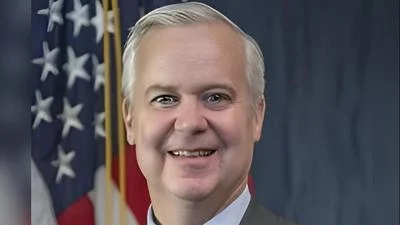Good evening, everyone.
This is an amazing turnout. We’ve transformed the UN General Assembly into a packed concert hall. I would say this is going to be the most watched concert we’ve ever held here, but that would be a slight to Beyoncé, who took the UN by storm with an electric performance on World Humanitarian Day in 2012. Of the royalty that have graced this stage, we are proud of the contribution of our “American Royalty” – Queen B.
But seriously, I so appreciate everything the UN Secretariat, U.S. Mission staff, and West Point team did to make this evening possible. And I want to thank all who have joined us for the United States’ first-ever Black History Month concert at the United Nations. [Applause.]
Black History Month is so important to me, but more importantly, it’s important to our country. It is a time to honor the remarkable achievements of Black Americans; achievements that are too often overlooked and underappreciated. It’s time to reflect on the dark legacy of discrimination, systemic racism that Black Americans have faced for so many decades. And it’s time to recommit to building a brighter, more just future for us all.
Tomorrow, we’ll go back to intense negotiations, and Council meetings, and General Assembly meetings, and votes; all of the UN Member States know what that’s like. But tonight, let’s come together in the spirit of progress and unity, enjoy the gift of these extraordinary musicians that you have sitting in front of you. And this really is an extraordinary bunch, so lets give them a hand of applause. [Applause.]
Lieutenant General Gilland, Brigadier General Quander, Lieutenant Colonel Toven, Command Sergeant Major Drewes, and every single member of the West Point Band and the West Point Cadet Glee Club – thank you very much. [Applause.]
Thank you for helping us to celebrate Black History Month through the music of storied composers, through songs infused with Black spirituality, through the rhythm of Afro-Caribbean and Black Latin American artists, through Motown tunes that will make you want to get up and dance. And I hope you do, because I will.
Now, I was born and raised in Louisiana, and Louisiana music – especially jazz – is the rhythm of life. I remember when I first fell in love with a jazz album, I was in junior high school, and I heard Wes Montgomery at a dance. What he could do with a guitar – well, it just struck chords with me. So, I ran out, and I got an album – some of you might not know what an album is – a few of us still do. [Laughter.] But it really felt like home, and I still have that album – it may be worth something now.
Because for me, and for so many African Americans, music is a connection to our history in all its richness, its diversity, its joy, and its sorrows.
Tonight’s program will take you on that journey. You will be treated to a stirring rendition of “Buffalo Soldiers” and learn about some of the earliest African American servicemembers. You will hear the band perform classic soul music that will fill you with hope and love. And we will close out the evening with “Lift Every Voice and Sing,” a hymn that has been called the “Black National Anthem.” You have those lyrics on the program in front of you, so be ready to sing along.
I hope everyone warmed up with vocal exercises before coming here. I will tell you, you do not want to hear me sing. [Laughter.] I whisper when I’m singing. If I look like I’m belting out, if you put a microphone in front of me, no sound is coming. I’ve been warned by my children, my grandchildren, and my dog, not to sing in front of people. [Laughter.]
But I’m going to have a good time, because, as the Cadet Glee Club likes to say: “No fun without music, no music without fun.” So let’s get this show on the road. And as we say in Louisiana, laissez les bon temps rouler.
Ladies and gentlemen, I present to you, the United States Army’s West Point Band and Cadet Glee Club. [Applause.]
Original source can be found here.







